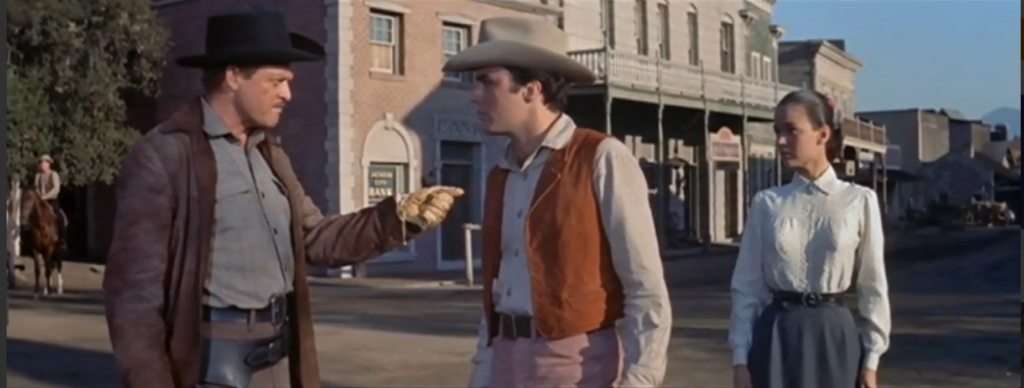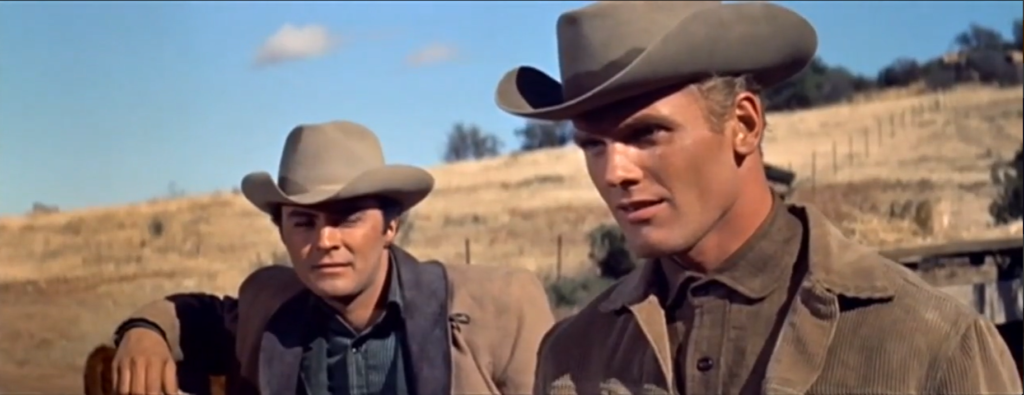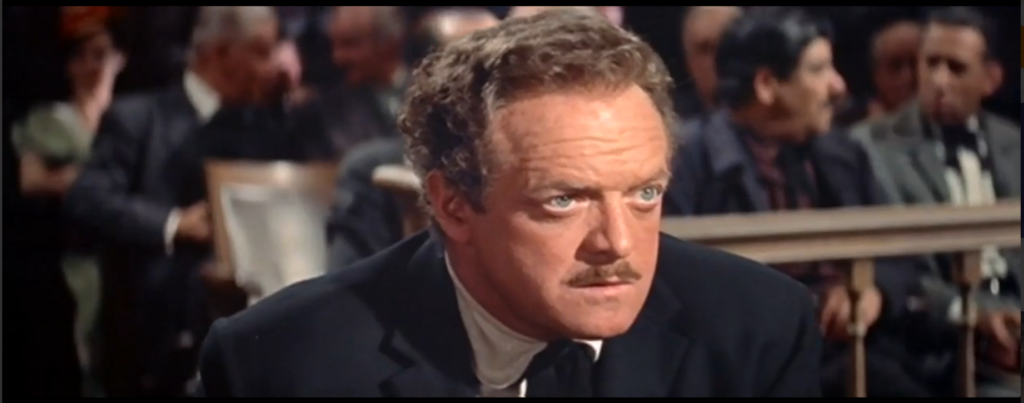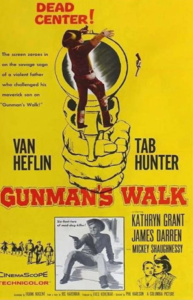|
Genres, Themes, Actors, and Directors:
- Cross-Cultural Romance
- Father and Child
- Native Americans
- Phil Karlson Films
- Race Relations
- Ranchers
- Tab Hunter Films
- Van Heflin Films
- Westerns
Review:
As noted in Mike Grost’s analytical overview of Phil Karlson’s films, Gunman’s Walk accurately reflects the sentiments and concerns of both its director — in the way it shows “the effects of hate and violence poisoning people’s characters” — and its screenwriter, Frank Nugent (whose concern with racial prejudice was evident as well in his screenplays for both The Searchers and Sergeant Rutledge). Indeed, Gunman’s Walk is a surprisingly hard-hitting western which touches on some challenging themes — notably, the need to scale back on violence and machismo in a newly evolving West, and the enduring legacy of racial prejudice against Native Americans.

This is ultimately a film about cognitive dissonance, given that all three leading male characters must deal with uncomfortable facts they don’t want to have to face. Van Heflin gives an excellent performance in the central role as a father who understands (and even admires) his son’s gun-loving ways, but slowly realizes he can no longer support him unconditionally; meanwhile, teen heartthrob Tab Hunter is believably hot-headed as Ed Hackett, and James Darren does a fine job as his conflicted brother.

This one is definitely worth seeking out.
Redeeming Qualities and Moments:
- Van Heflin as Lee Hackett

- Frank S. Nugent’s smart script
Must See?
Yes, for Heflin’s memorable performance. Listed as a Cult Movie in the back of Peary’s book.
Categories
- Noteworthy Performance(s)
Links:
|




One thought on “Gunman’s Walk (1958)”
A must – and one that gets better with multiple viewings.
This is an excellent, gripping and complex western. Cognitive dissonance is right! 😉
The film most clearly rings out in dual fashion: as a lesson in old world vs. new, and as a bold statement on blind, parental devotion. Heflin’s Papa Hackett is not, in essence, a bad man. Yet he becomes one through arrogance – in adhering to a way of life that has passed. This plays out through his sons: one is conflicted in his lazy effort to reconcile the past with the present, and the other (of course, younger one) has fully embraced the way things have evolved. The result is a powder keg waiting to explode. Blood is certainly thicker than water – and too often thicker than common sense.
Nugent’s sharply balanced script flies like a bat out of hell, keenly aware of logical progression at every turn. The most fascinating aspect is the fact that the town is fully aware of what it owes to Heflin’s character. Simultaneously, it is also aware that what he stands for needs to be watched – since he has curbed his own awareness of what human progress means.
Karlson gets wonderful performances out of his entire cast. DP Charles Lawton Jr.’s work is nothing short of stunning.
I remember seeing this years ago. I had forgotten how powerful it is – which probably happened because the film seems in need of better recognition.